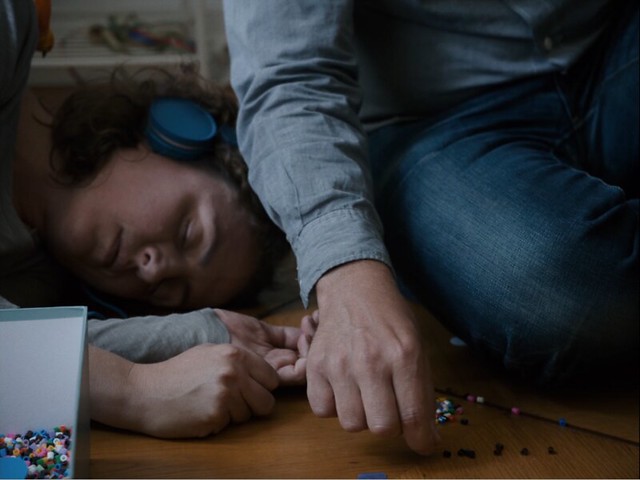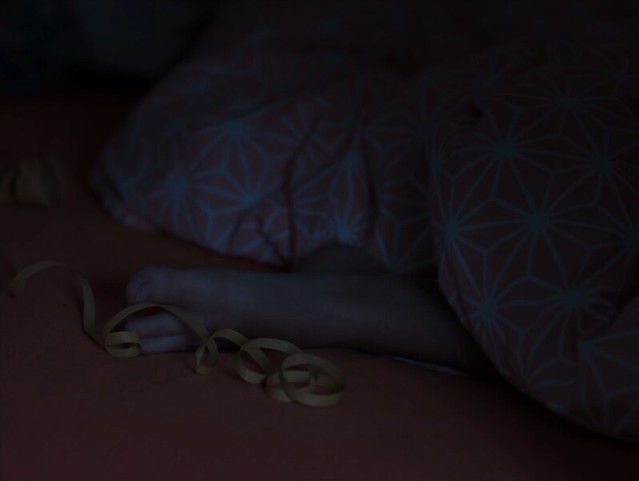





Angela Schanelec told me last year that she starts her films with one or two images in her head. Der traumhafte Weg is full of those striking images that might or might not be in communication with each other. The film is probably the most elaborate and complex film in her filmography. It can be seen as less abstract and enigmatic because there is a semblance or ghost of a narrative this time. Yet, it's still all about small gestures, disembodied framing, minimal dialog, seemingly impregnated images - pretty much everything I look for in films. There are two slightly interconnected stories. It begins in a Greek Island in 1984. Theres (Miriam Jacob) and Kenneth (Thorbjörn Björnsson) are seen busking in the street, serenading a super lo-fi version of The Lion Sleeps Tonight. In the background, there's a clumsy celebration of Greece becoming the member of EU. The young organizers lose control of their white banner and it flutters in the wind. Kenneth collapses at the phone booth at the news of her mother's fatal accident. He will need to fly back to his home in England. With little dialog they exchange, we get the aspirations of these young people before they go their separate ways- he wants to be a musician and she, probably a teacher like her mom. "Do you think that's boring?" She asks before he leaves. No, he says. Kenneth, back in England, tends to his dying mother and his near-blind father. TV is showing caravan of East Germans fleeing Soviet Bloc, taking dangerous routes. The year is 1989. The family tragedy has destroyed him pretty much. Theres, now a single mom back in Germany, gets an acceptance letter at a school in Berlin and she moves there with her young son.
A married couple is on the verge of breaking up in Berlin: they are Ariane (Maren Eggert, Schanelec regular), an actress and David (Phil Hayes), a famed photographer. They have a young daughter. It seems they both are often neglecting their parental duties, partly due to their busy career. Ariane behaves either erratically or absent-mindedly - breaking a glass display case in the bookstore to get her estranged husbands book and having toilet paper stuck to her behind like a tail, flying in the wind like some celebration banner (is she a stand-in for EU?).
These stories very slightly intermingle as if they are total strangers brushing past each other by chance. Schanelec toys with the idea of dissolution of relationship whether it's by unseen life circumstances or self-inflicted. Theres and Kenneth meet again in Berlin after unspecified time (years/decades) has passed in a heartbreaking scene. And they are wearing the same outfit they wore when they were last together. Does the time exist? Is the life all a dream or vice versa? Ken is now a street beggar with a dog. They recognize each other in silence and Theres just walks away. There are a lot of impregnated silences in Schanelec's films and this is no exception. All the things that her characters want to say or could say never get their chances to be heard. Time is a machine that chugs along mercilessly. Ariane is being interviewed at the end of the movie. She is asked if she chose acting as a substitute for conversations she didn't have growing up, as a lonely child. She answers that she is not less lonely because of acting. Der traumhafte Weg traces a path of life and its disappointments. It's very life-like. It's also a profoundly sad film done with very little drama. Grander in scale than any other of her films and much more affecting, it is undoubtedly my favorite Schanelec so far.